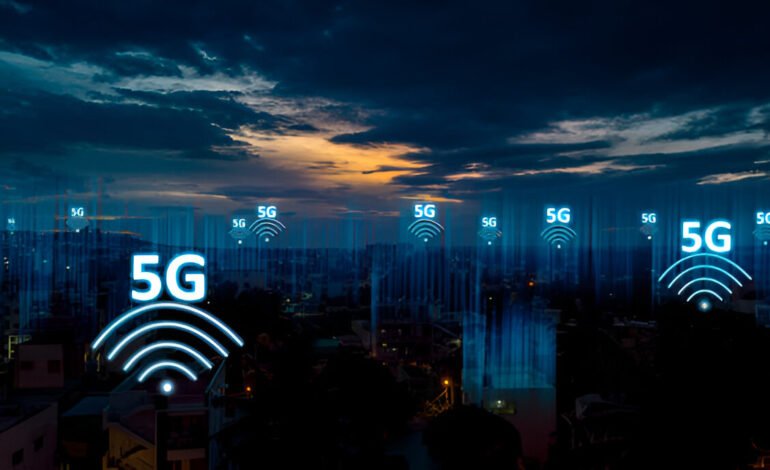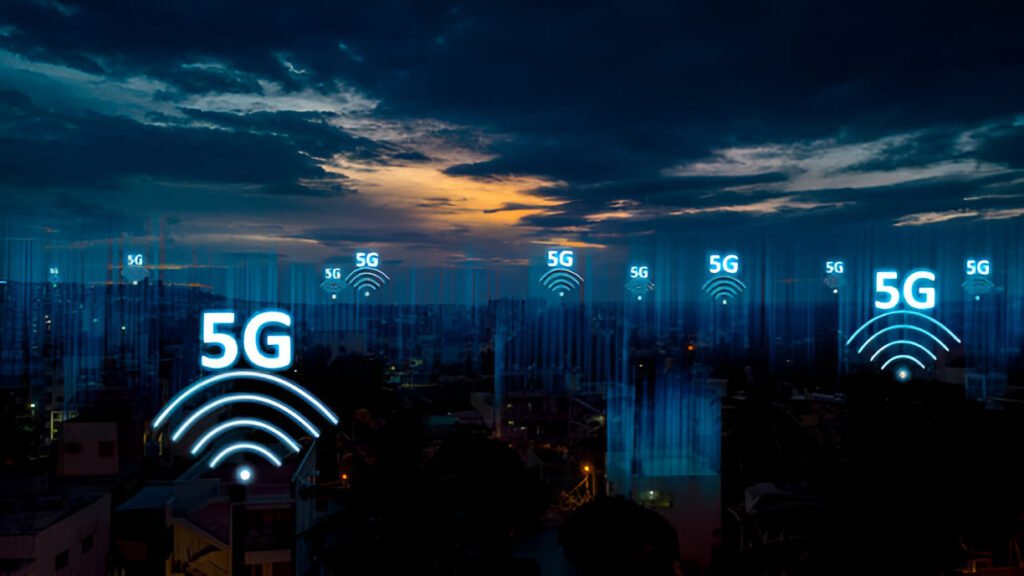
Everything You Need to Know About 5G
The world is abuzz about 5G, and rightfully so. This next-generation wireless technology is about to fundamentally change how we connect, communicate, and experience the digital world. But what precisely does 5G mean, and how is it going to impact your daily life? In this article, we go through everything 5G-take that ambiguity of the subject and make it all more concrete in very plain terms.

What is 5G?
5G-Abbreviation for the fifth generation-is the latest generation of mobile network technology. It is an upgrade from 4G, somewhat like going from a really old smartphone to the newest model. It promises higher speeds, lower latencies, and increased capacity-that is, more devices at once. This is no incremental improvement; what 5G does is game-changing.
How does 5G work?
Essentially, 5G uses higher frequency bands of the radio spectrum-known as the millimeter waves capable of handling greater capacity to carry more data at faster speeds. High-frequency signals are the wide highway on which more traffic travels faster. But just like highways, they require more infrastructure-small cell towers placed closer together-to ensure a strong signal in cities.
The Evolution of Wireless Technology: From 1G to 5G
It is good to understand 5G, but first, looking at its predecessor chart is important to understand the evolution of wireless technology.
- 1G introduced into our lives the very first mobile phones with voice communication.
- 2G introduced text messaging into our lives.
- 3G let people access basic browsing on the internet.
- 4G brought us fast high-speed mobile internet-smooth HD video streaming, online gaming, and more.
With 5G, a new generation of connectivity ushers in a world where the internet will move even quicker and be further stitched into the fabric of life.
The Benefits of 5G
- Speed: 5G could be up to 100 times quicker than 4G. This could mean that one could download a full HD movie in mere seconds.
- Latency: Ultra-low latency means that applications requiring real-time responses will run smoother and more stably, such as online gaming and autonomous driving.
- Capacity: 5G is capable of handling more devices connected to the network at the same time-a very important capability as we consider the journey toward a smart world.
5G vs. 4G: What’s the Difference?
The major differences between 5G and 4G concern speed, latency, and capacity. While 4G brought us fast mobile Internet, 5G will offer lightning-fast connections with very little lag. In addition to that, 5G is going to support many more connected devices, including smart cities and IoT-just to name a couple of ideas for the future.
The Impact of 5G on Daily Life
Now imagine the smart fridge reorder for groceries, doctors tracking vital signs from enabled wearables remotely in real time, and cars talking to highway systems to reroute around congestion. Those are just some of the ways 5G will impact daily life. With 5G, everything from work to play will be faster and more delightful because devices can talk to each other faster than ever.
IoT and 5G
The IoT describes everything from smart home appliances to industrial sensors. Now, 5G is going to be the core through which these gadgets will communicate much more easily and quickly with each other. This may turn homes wiser, factories more efficient, and even whole cities running on connected systems. That’s the huge potential of IoT, where 5G technology is going to bring transformation into industries and daily life.
The Challenges of 5G Deployment
While 5G promises a great deal, the actual deployment is a tall order in itself. The infrastructure required for small cells and updated towers is huge in amount. In the cities, the deployment could be quicker owing to high demand, but when it comes to rural deployment, the matter may be considerably tougher. 5G frequency signals are also higher and cannot travel as far as lower frequency signals, meaning there will be more antennas needed to create a denser network.
Is 5G Safe? Addressing Key Health Concerns
With any new technology, there are always concerns over safety. Some fear the higher frequency electromagnetic fields applied in 5G could cause health implications. However, extensive scientific work from organizations such as the World Health Organization has found no adverse health effects from exposure to wireless technologies, including 5G. 5G radiations remain within all international limits for safety; thus, it is just as safe as its forerunner wireless generations.
The Future Beyond 5G
5G is just but the beginning. When the technology ripens, expect even more in terms of speeds and reliability and, finally, of course, coverage. That innovation might be 6G, though, which will take an even bigger leap in how we connect with and interact with the world around us. For now, though, 5G represents a huge leap forward in our digital evolution.
How to Get 5G on Your Devices
The initial thing you need to get started with 5G is a 5G-enabled device. Currently, most of the known smartphone brands, such as Apple and Samsung, already produce 5G-enabled models of their phones. Secondly, 5G is also spreading its coverage so that one can check with their service providers if it is available in their locality. You will also have to qualcomm upgrade to a 5G plan in order to fully benefit from this technology.
5G and Smart Cities
General definitions of smart cities would refer to metropolises using data and technologies in an attempt to improve efficiency, sustainability, and quality of life for its citizens. Smart cities thus have 5G as a critical enabler since this radio technology allows just-in-time collection and communication of data across infrastructure, vehicles, and residents. Such may lead to wiser traffic management, better energy usage, and higher levels of public safety.
5G Myths and Facts
With all the hype surrounding 5G, it’s extremely easy to misinterpret rumors. Some of those common myths and corresponding facts are discussed below.
- Myth: 5G causes health issues. Fact: 5G will operate well within the bounds of safe radiation, just like its predecessors.
- Myth: 5G is all about faster internet. Fact: Although at a higher speed, it assurances are also about lower latency, increased capacity, and connectivity to a very large number of devices.
- Myth: 5G will replace Wi-Fi. Reality: 5G and Wi-Fi will co-exist. Wi-Fi will remain crucial in home and office environments where connectivity is a big driver.





